- and supplements may have therapeutic value
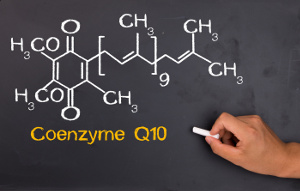 Hereditary hemochromatosis is a group of diseases that involve iron accumulation in the body. This leads to oxidative stress and tissue destruction which may affect the liver and other organs. According to a new Argentinian study, patients with hereditary hemochromatosis lack Q10 in their blood. Because Q10 is of vital importance to the cellular energy turnover and it also serves as a powerful antioxidant against oxidative stress, a Q10 deficiency will contribute to the disease. This, the researchers behind the new study explain, is why Q10 may represent a new and safe agent for treating the condition.
Hereditary hemochromatosis is a group of diseases that involve iron accumulation in the body. This leads to oxidative stress and tissue destruction which may affect the liver and other organs. According to a new Argentinian study, patients with hereditary hemochromatosis lack Q10 in their blood. Because Q10 is of vital importance to the cellular energy turnover and it also serves as a powerful antioxidant against oxidative stress, a Q10 deficiency will contribute to the disease. This, the researchers behind the new study explain, is why Q10 may represent a new and safe agent for treating the condition.
- atherosclerosis, and early death
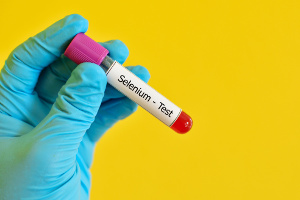 Cholesterol is an essential compound with many different functions. However, it can also turn into a potentially dangerous substance if it oxidizes and is embedded in the blood vessel walls. This oxidative process is what eventually leads to atherosclerosis. The trace element selenium protects against atherosclerosis because of its antioxidant properties and because of other mechanisms, according to a review article published in Biomedicine. This is highly relevant in our part of the world where cardiovascular disease is the leading cause of death, and where selenium deficiency is so widespread.
Cholesterol is an essential compound with many different functions. However, it can also turn into a potentially dangerous substance if it oxidizes and is embedded in the blood vessel walls. This oxidative process is what eventually leads to atherosclerosis. The trace element selenium protects against atherosclerosis because of its antioxidant properties and because of other mechanisms, according to a review article published in Biomedicine. This is highly relevant in our part of the world where cardiovascular disease is the leading cause of death, and where selenium deficiency is so widespread.
- or too much?
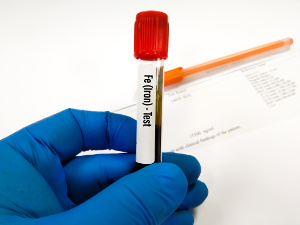 Lack of iron is the most widespread nutrient deficiency in the world and the most common cause of anemia. Iron deficiency causes fatigue, dizziness, paleness, impaired immunity, hair loss, and a host of other symptoms. It can cause stunted growth and learning difficulty in children. Some of the things that can cause iron deficiency are heavy menstrual bleeding, pregnancy, vegetarian/vegan diets, lack of vitamin C, antacids, inflammatory bowel diseases, and celiac disease. Excess iron, on the other hand, can also spell trouble by generating harmful free radicals that attack our cells. So, it is important not to get too little or too much iron – but just the right amount. In the following, you can read more about iron and its importance for our health.
Lack of iron is the most widespread nutrient deficiency in the world and the most common cause of anemia. Iron deficiency causes fatigue, dizziness, paleness, impaired immunity, hair loss, and a host of other symptoms. It can cause stunted growth and learning difficulty in children. Some of the things that can cause iron deficiency are heavy menstrual bleeding, pregnancy, vegetarian/vegan diets, lack of vitamin C, antacids, inflammatory bowel diseases, and celiac disease. Excess iron, on the other hand, can also spell trouble by generating harmful free radicals that attack our cells. So, it is important not to get too little or too much iron – but just the right amount. In the following, you can read more about iron and its importance for our health.
 Yes, according to a new study published in Free Radical Biology & Medicine, lack of selenium lowers the kidneys’ sodium excretion via different mechanisms, and that leads to elevated blood pressure. The study results are highly relevant because hypertension and subsequent premature death is a growing global problem. Selenium deficiency is also a widespread problem. One billion people worldwide are believed to be lack this essential nutrient, primarily because of the selenium-depleted agricultural soil in large parts of China, Europe, and other places.
Yes, according to a new study published in Free Radical Biology & Medicine, lack of selenium lowers the kidneys’ sodium excretion via different mechanisms, and that leads to elevated blood pressure. The study results are highly relevant because hypertension and subsequent premature death is a growing global problem. Selenium deficiency is also a widespread problem. One billion people worldwide are believed to be lack this essential nutrient, primarily because of the selenium-depleted agricultural soil in large parts of China, Europe, and other places.
 Apparently so. According to a new study published in the journal Alzheimer’s and Dementia, older people who take a daily multivitamin supplement for several years are far less likely to develop dementia, Alzheimer’s disease, and other types of cognitive decline. The new study supports earlier research where it has been seen that the different vitamins and minerals increase cerebral blood flow and protect neurons. It pays off to choose high-quality supplements to make sure that the nutrients are properly absorbed in the body.
Apparently so. According to a new study published in the journal Alzheimer’s and Dementia, older people who take a daily multivitamin supplement for several years are far less likely to develop dementia, Alzheimer’s disease, and other types of cognitive decline. The new study supports earlier research where it has been seen that the different vitamins and minerals increase cerebral blood flow and protect neurons. It pays off to choose high-quality supplements to make sure that the nutrients are properly absorbed in the body.
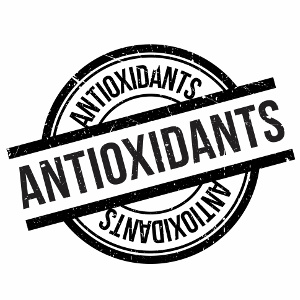 Everyone is affected by electromagnetic radiation from cell phones, device screens, the electricity supply and other electric systems. The brain’s neurons are particularly vulnerable, especially because electromagnetic radiation can increase the neuronal uptake of calcium ions, which makes the neurons overactive and may even cause them to perish. A study published in News Medical Life Sciences shows that too much calcium in the brain increases the risk of Alzheimer’s disease and digital dementia in young individuals. The increased electromagnetic radiation also generates loads of free radicals in the body that can cause oxidative stress and cellular damage because it outperforms the body’s different antioxidants. This was described in an article published in The Journal of Microscopy & Ultrastructure that also mentions how electromagnetic radiation can cause stress, headaches, fatigue, anxiety, and other symptoms.
Everyone is affected by electromagnetic radiation from cell phones, device screens, the electricity supply and other electric systems. The brain’s neurons are particularly vulnerable, especially because electromagnetic radiation can increase the neuronal uptake of calcium ions, which makes the neurons overactive and may even cause them to perish. A study published in News Medical Life Sciences shows that too much calcium in the brain increases the risk of Alzheimer’s disease and digital dementia in young individuals. The increased electromagnetic radiation also generates loads of free radicals in the body that can cause oxidative stress and cellular damage because it outperforms the body’s different antioxidants. This was described in an article published in The Journal of Microscopy & Ultrastructure that also mentions how electromagnetic radiation can cause stress, headaches, fatigue, anxiety, and other symptoms.
- and antioxidants like selenium, Q10, and melatonin play a role in prevention and treatment
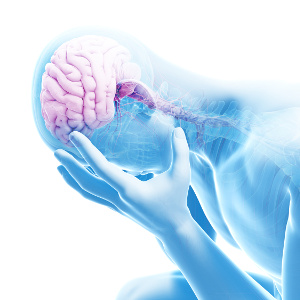 There is a link between depression, dementia and Alzheimer’s disease. Also, it appears that chronic stress contributes to oxidative stress and brain cell damage. In a review article that is published in the science journal Antioxidants, researchers look closer at how oxidative stress affects the brain. They also study how antioxidants can be included in the prevention and treatment of Alzheimer’s disease, and why the most promising results are seen with selenium, Q10, melatonin, vitamin E, turmeric, and polyphenols. With regard to depression, selenium, zinc, vitamin E, turmeric, and saffron have demonstrated the greatest potential.
There is a link between depression, dementia and Alzheimer’s disease. Also, it appears that chronic stress contributes to oxidative stress and brain cell damage. In a review article that is published in the science journal Antioxidants, researchers look closer at how oxidative stress affects the brain. They also study how antioxidants can be included in the prevention and treatment of Alzheimer’s disease, and why the most promising results are seen with selenium, Q10, melatonin, vitamin E, turmeric, and polyphenols. With regard to depression, selenium, zinc, vitamin E, turmeric, and saffron have demonstrated the greatest potential.
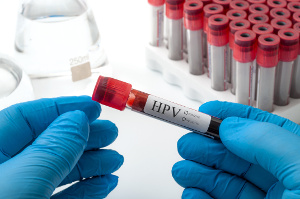 The majority of sexually active people contract HPV (human papilloma virus), of which there are several types. Normally, the infection goes away by itself but in some cases it becomes chronic. This increases the risk of serious cell changes in the cervix which, in worst case, can result in cervical cancer. An American study has found that having adequate levels of five different antioxidants – albumin plus vitamins A, B2, E, and folic acid – may lower papilloma virus infections that are linked to cervical cancer.
The majority of sexually active people contract HPV (human papilloma virus), of which there are several types. Normally, the infection goes away by itself but in some cases it becomes chronic. This increases the risk of serious cell changes in the cervix which, in worst case, can result in cervical cancer. An American study has found that having adequate levels of five different antioxidants – albumin plus vitamins A, B2, E, and folic acid – may lower papilloma virus infections that are linked to cervical cancer.
 Magnesium is important for numerous physiological functions. In a new review article published in Nutrients, researchers have looked at the relation between the body’s magnesium levels and a variety of different ageing markers. Also, they hypothesize that optimal intake of magnesium throughout life is an easy and inexpensive way to obtain healthy ageing.
Magnesium is important for numerous physiological functions. In a new review article published in Nutrients, researchers have looked at the relation between the body’s magnesium levels and a variety of different ageing markers. Also, they hypothesize that optimal intake of magnesium throughout life is an easy and inexpensive way to obtain healthy ageing.
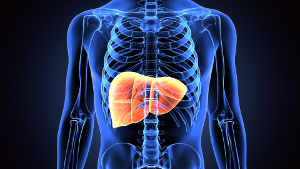 Non-alcoholic fatty liver disease (NAFLD) is a liver disease that is spreading like a bushfire. NAFLD is associated with obesity and metabolic syndrome, which is an early stage of type 2 diabetes. What you eat plays a major role, and a large Chinese study has actually demonstrated that higher dietary intake of vitamin C can improve blood sugar levels and the liver function. It is also wise to lower your intake of carbohydrates, especially fructose that can put a huge strain on the liver and turn it into a virtual “fat factory”.
Non-alcoholic fatty liver disease (NAFLD) is a liver disease that is spreading like a bushfire. NAFLD is associated with obesity and metabolic syndrome, which is an early stage of type 2 diabetes. What you eat plays a major role, and a large Chinese study has actually demonstrated that higher dietary intake of vitamin C can improve blood sugar levels and the liver function. It is also wise to lower your intake of carbohydrates, especially fructose that can put a huge strain on the liver and turn it into a virtual “fat factory”.
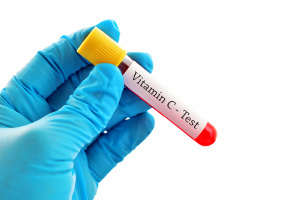 Chronic fatigue commonly follows in the wake of influenza, herpes, COVID-19, and other infections. The immune system does not function optimally, and the tiredness is caused by oxidative stress and inflammation. The condition is often accompanied by poor concentration, depression, and sleep disturbances. Oxidative stress is an imbalance between pro-inflammatory free radicals and protective antioxidants. Vitamin C happens to be one of the most potent antioxidants, and intravenous vitamin C therapy has been shown to reduce tiredness that follows after different types of virus infections, according to a review article in the scientific journal Nutrients. Here, the scientists also write about intravenous vitamin C therapy in connection with chronic fatigue syndrome following COVID-19 infections.
Chronic fatigue commonly follows in the wake of influenza, herpes, COVID-19, and other infections. The immune system does not function optimally, and the tiredness is caused by oxidative stress and inflammation. The condition is often accompanied by poor concentration, depression, and sleep disturbances. Oxidative stress is an imbalance between pro-inflammatory free radicals and protective antioxidants. Vitamin C happens to be one of the most potent antioxidants, and intravenous vitamin C therapy has been shown to reduce tiredness that follows after different types of virus infections, according to a review article in the scientific journal Nutrients. Here, the scientists also write about intravenous vitamin C therapy in connection with chronic fatigue syndrome following COVID-19 infections.
 Critically ill patients often suffer from inflammation and oxidative stress, which is an imbalance between harmful free radicals and protective antioxidants. In worst case, this may result in tissue damage and organ failure. It turns out vitamin C is a powerful antioxidant with a therapeutic potential. According to a new systematic review article and meta-analysis, therapy with large quantities of intravenous vitamin C helps shorten the duration of the hospital stay for critically ill patients without any side effects.
Critically ill patients often suffer from inflammation and oxidative stress, which is an imbalance between harmful free radicals and protective antioxidants. In worst case, this may result in tissue damage and organ failure. It turns out vitamin C is a powerful antioxidant with a therapeutic potential. According to a new systematic review article and meta-analysis, therapy with large quantities of intravenous vitamin C helps shorten the duration of the hospital stay for critically ill patients without any side effects.
 Kidney stones is a painful and quite common problem. The diet plays a major role and according to a large American population study published in Nutrients, selenium may help prevent the condition. The authors mention that selenium-containing proteins and antioxidants have preventative mechanisms and due to the widespread problems with selenium-depleted farmland, they say that selenium supplementation may be a good way to prevent and manage kidney stones and other pathological changes.
Kidney stones is a painful and quite common problem. The diet plays a major role and according to a large American population study published in Nutrients, selenium may help prevent the condition. The authors mention that selenium-containing proteins and antioxidants have preventative mechanisms and due to the widespread problems with selenium-depleted farmland, they say that selenium supplementation may be a good way to prevent and manage kidney stones and other pathological changes.
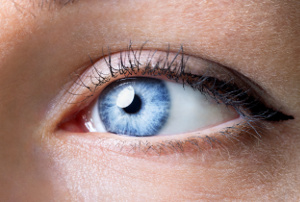 It is commonly known that pregnant diabetics have an increased risk of developing an eye disease called diabetic retinopathy. The diet plays a major role and it appears that a vitamin C deficiency increases the risk, according to a Danish study of pregnant type 1 diabetics that is published in the journal Antioxidants. The authors also mention that vitamin C is a vital antioxidant that protects cells and tissues against oxidative stress caused by free radicals.
It is commonly known that pregnant diabetics have an increased risk of developing an eye disease called diabetic retinopathy. The diet plays a major role and it appears that a vitamin C deficiency increases the risk, according to a Danish study of pregnant type 1 diabetics that is published in the journal Antioxidants. The authors also mention that vitamin C is a vital antioxidant that protects cells and tissues against oxidative stress caused by free radicals.
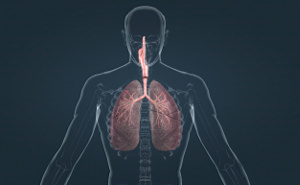 Vitamin C is of vital importance to our immune defense, and it serves as a powerful antioxidant to protect cells and tissues. Large quantities of vitamin C are able to improve lung function in patients with chronic obstructive pulmonary disease (COPD) and other chronic lung disorders. This was demonstrated in a large meta-analysis published in International Journal of Chronic Obstructive Pulmonary Disease.
Vitamin C is of vital importance to our immune defense, and it serves as a powerful antioxidant to protect cells and tissues. Large quantities of vitamin C are able to improve lung function in patients with chronic obstructive pulmonary disease (COPD) and other chronic lung disorders. This was demonstrated in a large meta-analysis published in International Journal of Chronic Obstructive Pulmonary Disease.
 Magnesium is required for a well-functioning immune defense and for controlling inflammatory processes that are vital to our health. Magnesium also appears to protect against COVID-19 and other infections and the development of cancer, according to a review article published in Journal of Health, Population, and Nutrition. Our modern, refined diet, stress, ageing, stimulant abuse, and different types of medicine also contribute to the widespread problems with magnesium deficiency.
Magnesium is required for a well-functioning immune defense and for controlling inflammatory processes that are vital to our health. Magnesium also appears to protect against COVID-19 and other infections and the development of cancer, according to a review article published in Journal of Health, Population, and Nutrition. Our modern, refined diet, stress, ageing, stimulant abuse, and different types of medicine also contribute to the widespread problems with magnesium deficiency.
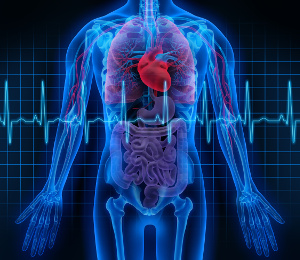 Cardiovascular diseases are widespread and one of the major causes of death. The risk is increased by factors such as ageing, diabetes, and overweight. One of the underlying causes is oxidative stress, which is an imbalance between free radicals and antioxidants. Q10, which is involved in cellular energy turnover, happens to be one of the most powerful antioxidants. According to a review article that is published in the scientific journal Antioxidants, supplementation with Q10 can reduce oxidative stress and cardiovascular mortality. It can also improve quality of life and increase the chances of survival. Generally speaking, Q10 has a huge potential for anyone with a desire to remain healthy, and it is important to choose a supplement with documented quality and bioavailability.
Cardiovascular diseases are widespread and one of the major causes of death. The risk is increased by factors such as ageing, diabetes, and overweight. One of the underlying causes is oxidative stress, which is an imbalance between free radicals and antioxidants. Q10, which is involved in cellular energy turnover, happens to be one of the most powerful antioxidants. According to a review article that is published in the scientific journal Antioxidants, supplementation with Q10 can reduce oxidative stress and cardiovascular mortality. It can also improve quality of life and increase the chances of survival. Generally speaking, Q10 has a huge potential for anyone with a desire to remain healthy, and it is important to choose a supplement with documented quality and bioavailability.
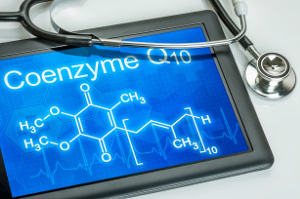 Diabetes damages the circulatory system in a number of ways that are linked to impaired quality of life and early death. A meta-analysis shows that if type 2 diabetics take supplements of Q10 it lowers their risk of cardiovascular disease by reducing levels of total cholesterol and LDL cholesterol. Another positive effect of Q10 is that it serves as a unique antioxidant that counteracts oxidative stress, which is a major cause of atherosclerosis and cardiovascular damage. One of the problems of using cholesterol-lowering statins is that it inhibits the body’s endogenous Q10 synthesis, but this is something one can compensate for. According to Danish research, it is also a good idea to limit your carbohydrate intake and follow the new dietary guidelines that help stabilize blood sugar levels.
Diabetes damages the circulatory system in a number of ways that are linked to impaired quality of life and early death. A meta-analysis shows that if type 2 diabetics take supplements of Q10 it lowers their risk of cardiovascular disease by reducing levels of total cholesterol and LDL cholesterol. Another positive effect of Q10 is that it serves as a unique antioxidant that counteracts oxidative stress, which is a major cause of atherosclerosis and cardiovascular damage. One of the problems of using cholesterol-lowering statins is that it inhibits the body’s endogenous Q10 synthesis, but this is something one can compensate for. According to Danish research, it is also a good idea to limit your carbohydrate intake and follow the new dietary guidelines that help stabilize blood sugar levels.
- and oxidative stress
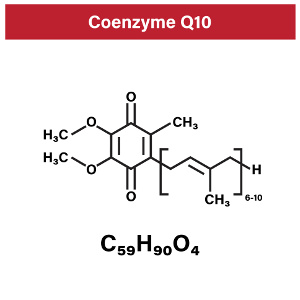 The body uses inflammation as part of its normal immune response to infections and tissue damage. If inflammation becomes chronic, however, it can be extremely dangerous. What happens is that it bombards the body with free radicals. This leads to oxidative stress and increases the risk of cell damage, overweight, and chronic diseases like type 2 diabetes, cardiovascular disease, autoimmune diseases, and different cancer forms. Diet and lifestyle play a major role, and according to a meta-analysis published in Frontiers in Pharmacology, Q10 supplementation can lower several markers of inflammation and oxidative stress.
The body uses inflammation as part of its normal immune response to infections and tissue damage. If inflammation becomes chronic, however, it can be extremely dangerous. What happens is that it bombards the body with free radicals. This leads to oxidative stress and increases the risk of cell damage, overweight, and chronic diseases like type 2 diabetes, cardiovascular disease, autoimmune diseases, and different cancer forms. Diet and lifestyle play a major role, and according to a meta-analysis published in Frontiers in Pharmacology, Q10 supplementation can lower several markers of inflammation and oxidative stress.
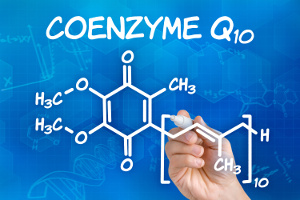 Q10 is a unique compound with a key role in cellular energy turnover. It also serves as a powerful antioxidant. The body is able to synthesize most of the Q10 that it needs but as we grow older, our endogenous synthesis decreases, making us vulnerable in different ways. Cholesterol-lowering medicine and certain types of disease are also associated with lower levels of Q10 in the body. In a new review article, a group of scientists have scrutinized hundreds of Q10 studies that have been published in the years 2010-2020. They are able to conclude that Q10 is of particular importance to the heart, circulatory system, fertility, muscles, eyes and vision, and the ageing process. Things like migraines, chronic fatigue syndrome, and neurodegenerative diseases such as Parkinson’s and Alzheimer’s disease are also addressed. The body has difficulty with absorbing Q10 from food and supplements so it is recommendable to always choose a pharmaceutical-grade Q10 preparation with documented bioavailability.
Q10 is a unique compound with a key role in cellular energy turnover. It also serves as a powerful antioxidant. The body is able to synthesize most of the Q10 that it needs but as we grow older, our endogenous synthesis decreases, making us vulnerable in different ways. Cholesterol-lowering medicine and certain types of disease are also associated with lower levels of Q10 in the body. In a new review article, a group of scientists have scrutinized hundreds of Q10 studies that have been published in the years 2010-2020. They are able to conclude that Q10 is of particular importance to the heart, circulatory system, fertility, muscles, eyes and vision, and the ageing process. Things like migraines, chronic fatigue syndrome, and neurodegenerative diseases such as Parkinson’s and Alzheimer’s disease are also addressed. The body has difficulty with absorbing Q10 from food and supplements so it is recommendable to always choose a pharmaceutical-grade Q10 preparation with documented bioavailability.
- and increase your lifespan
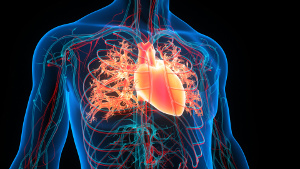 Cardiovascular diseases are the leading cause of death. However, in 2013, Professor Urban Alehagen, a Swedish cardiologist, demonstrated that giving supplements of selenium and Q10 to seniors could strengthen their hearts and reduce their cardiovascular mortality rate by over 50 percent. In follow-ups of his research, it was seen that the two supplements had a long-term effect on lifespan, but there is more to the story. In a whole new study that is published in European Journal of Nutrition, Alehagen manages to show in detail that selenium and Q10 have a positive effect on oxidative stress and inflammation at the same time as improving a number of biomarkers of heart health. He also explains why it can be a challenge to get enough Q10 and selenium through an entire life.
Cardiovascular diseases are the leading cause of death. However, in 2013, Professor Urban Alehagen, a Swedish cardiologist, demonstrated that giving supplements of selenium and Q10 to seniors could strengthen their hearts and reduce their cardiovascular mortality rate by over 50 percent. In follow-ups of his research, it was seen that the two supplements had a long-term effect on lifespan, but there is more to the story. In a whole new study that is published in European Journal of Nutrition, Alehagen manages to show in detail that selenium and Q10 have a positive effect on oxidative stress and inflammation at the same time as improving a number of biomarkers of heart health. He also explains why it can be a challenge to get enough Q10 and selenium through an entire life.
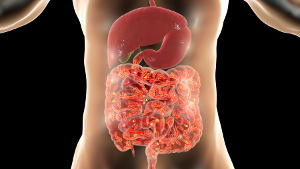 Selenium is an essential trace element of vital importance to our general health. The nutrient is also important for our gut flora, and being selenium-deficient may increase the risk of irritable bowel syndrome, inflammatory gut diseases like Crohn’s disease and ulcerous colitis, and even bowel cancer. Our intestine is also called our “third brain” because both our gut flora and digestion have a significant influence on our mental well-being, according to a review article published in Frontiers in Nutrition. The authors focus on selenium because selenium deficiencies are common in China, Europe, and many other places, and supplementation may be necessary.
Selenium is an essential trace element of vital importance to our general health. The nutrient is also important for our gut flora, and being selenium-deficient may increase the risk of irritable bowel syndrome, inflammatory gut diseases like Crohn’s disease and ulcerous colitis, and even bowel cancer. Our intestine is also called our “third brain” because both our gut flora and digestion have a significant influence on our mental well-being, according to a review article published in Frontiers in Nutrition. The authors focus on selenium because selenium deficiencies are common in China, Europe, and many other places, and supplementation may be necessary.
 Everybody is exposed to heavy metals and other environmental toxins. They are present in the water, the air, our diet, in cosmetics, tobacco smoke, medicine, and countless other sources. These toxins increase our risk of cancer, neurological disorders, thyroid disease, autoimmune disease, and numerous other health problems. Also, the combination of different toxins causes a “cocktail effect” that we know very little about. According to a Spanish study of mice, which is published in Science of The Total Environment, a selenium-enriched diet has a protective effect.
Everybody is exposed to heavy metals and other environmental toxins. They are present in the water, the air, our diet, in cosmetics, tobacco smoke, medicine, and countless other sources. These toxins increase our risk of cancer, neurological disorders, thyroid disease, autoimmune disease, and numerous other health problems. Also, the combination of different toxins causes a “cocktail effect” that we know very little about. According to a Spanish study of mice, which is published in Science of The Total Environment, a selenium-enriched diet has a protective effect.
 Regular sport is good for you, whereas arduous training and high-performance sport can result in physical injuries, infections, chronic inflammation, and serious diseases due to oxidative stress. This phenomenon occurs as a result of the increased energy turnover, which produces an excess of free radicals that cause damage to cells and tissues. Oxidative stress is also associated with impaired performance, poor restitution, and faster ageing. Our only natural defense against free radicals is the presence of antioxidants, and it is especially things like vitamin C, vitamin E, selenium, zinc, Q10, omega-3 fatty acids, and turmeric that protect against oxidative damage and improve recovery time. According to a review article published in Nutrients, supplements with the right doses of different nutrients can also help boost your physical and mental performance.
Regular sport is good for you, whereas arduous training and high-performance sport can result in physical injuries, infections, chronic inflammation, and serious diseases due to oxidative stress. This phenomenon occurs as a result of the increased energy turnover, which produces an excess of free radicals that cause damage to cells and tissues. Oxidative stress is also associated with impaired performance, poor restitution, and faster ageing. Our only natural defense against free radicals is the presence of antioxidants, and it is especially things like vitamin C, vitamin E, selenium, zinc, Q10, omega-3 fatty acids, and turmeric that protect against oxidative damage and improve recovery time. According to a review article published in Nutrients, supplements with the right doses of different nutrients can also help boost your physical and mental performance.
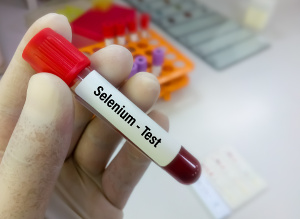 Both physical traumas and critical illnesses are associated with inflammation and oxidative stress where free radicals can cause potentially life-threatening damage to cells and tissues. Traumas are estimated to be the cause of one in ten deaths. New research suggests that early intervention with selenium may shorten the hospital stay including the days spent in intensive care and reduce total mortality. This was shown in a study published in Frontiers in Nutrition where the researchers looked closer at selenium’s unique antioxidant properties and anti-inflammatory effect.
Both physical traumas and critical illnesses are associated with inflammation and oxidative stress where free radicals can cause potentially life-threatening damage to cells and tissues. Traumas are estimated to be the cause of one in ten deaths. New research suggests that early intervention with selenium may shorten the hospital stay including the days spent in intensive care and reduce total mortality. This was shown in a study published in Frontiers in Nutrition where the researchers looked closer at selenium’s unique antioxidant properties and anti-inflammatory effect.
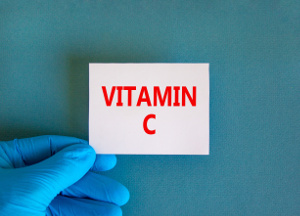 A type of cancer called chronic myeloid leukemia is characterized by an overproduction of white blood cells that can lead to symptoms like fatigue, infections, and other complications. Another characteristic feature of chronic myeloid leukemia is chronic inflammation that contributes to the disease progression. Vitamin C, however, appears to counteract the inflammation, according to a Brazilian in-vitro study that is published in Nutrients.
A type of cancer called chronic myeloid leukemia is characterized by an overproduction of white blood cells that can lead to symptoms like fatigue, infections, and other complications. Another characteristic feature of chronic myeloid leukemia is chronic inflammation that contributes to the disease progression. Vitamin C, however, appears to counteract the inflammation, according to a Brazilian in-vitro study that is published in Nutrients.
 Air pollution is a serious health threat that affects the entire world. Previous studies show that it increases the risk of cardiovascular disease, among other things. We need new strategies for protection, and a recent Chinese study conveniently reveals that supplementation with vitamin C can protect the cardiovascular system against oxidative stress and other harmful impacts from air pollution. What we need to find out is how much vitamin C it takes to obtain a therapeutic effect.
Air pollution is a serious health threat that affects the entire world. Previous studies show that it increases the risk of cardiovascular disease, among other things. We need new strategies for protection, and a recent Chinese study conveniently reveals that supplementation with vitamin C can protect the cardiovascular system against oxidative stress and other harmful impacts from air pollution. What we need to find out is how much vitamin C it takes to obtain a therapeutic effect.
- even in smokers
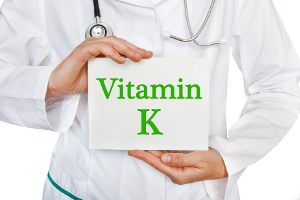 It has been known for long that vitamin K2 is important for circulation and bone health. According to a new study, vitamin K2 also lowers the risk of cardiovascular disease in smokers and other nicotine users. This is because vitamin K2 counteracts oxidative stress and atherosclerosis. The scientists stress how important vitamin K2 is for public health, including otherwise unhealthy groups such as smokers.
It has been known for long that vitamin K2 is important for circulation and bone health. According to a new study, vitamin K2 also lowers the risk of cardiovascular disease in smokers and other nicotine users. This is because vitamin K2 counteracts oxidative stress and atherosclerosis. The scientists stress how important vitamin K2 is for public health, including otherwise unhealthy groups such as smokers.
 We have relatively large quantities of zinc in our central nervous system where it plays a vital role in various physiological and pathological processes. Zinc is also important for brain development, various gene activities, the formation of new neurons, and the immune defense. What is more, zinc is a vital antioxidant that protects the brain against calcification and cell damage caused by oxidative stress. Zinc deficiency is a global problem and may be involved in a number of different neurological diseases – including stroke, cognitive impairment, Alzheimer’s disease, and depression, according to a new review article that is published in Biomolecules.
We have relatively large quantities of zinc in our central nervous system where it plays a vital role in various physiological and pathological processes. Zinc is also important for brain development, various gene activities, the formation of new neurons, and the immune defense. What is more, zinc is a vital antioxidant that protects the brain against calcification and cell damage caused by oxidative stress. Zinc deficiency is a global problem and may be involved in a number of different neurological diseases – including stroke, cognitive impairment, Alzheimer’s disease, and depression, according to a new review article that is published in Biomolecules.
 Hereditary hemochromatosis is a group of diseases that involve iron accumulation in the body. This leads to oxidative stress and tissue destruction which may affect the liver and other organs. According to a new Argentinian study, patients with hereditary hemochromatosis lack Q10 in their blood. Because Q10 is of vital importance to the cellular energy turnover and it also serves as a powerful antioxidant against oxidative stress, a Q10 deficiency will contribute to the disease. This, the researchers behind the new study explain, is why Q10 may represent a new and safe agent for treating the condition.
Hereditary hemochromatosis is a group of diseases that involve iron accumulation in the body. This leads to oxidative stress and tissue destruction which may affect the liver and other organs. According to a new Argentinian study, patients with hereditary hemochromatosis lack Q10 in their blood. Because Q10 is of vital importance to the cellular energy turnover and it also serves as a powerful antioxidant against oxidative stress, a Q10 deficiency will contribute to the disease. This, the researchers behind the new study explain, is why Q10 may represent a new and safe agent for treating the condition.







 Magnesium is important for numerous physiological functions. In a new review article published in Nutrients, researchers have looked at the relation between the body’s magnesium levels and a variety of different ageing markers. Also, they hypothesize that optimal intake of magnesium throughout life is an easy and inexpensive way to obtain healthy ageing.
Magnesium is important for numerous physiological functions. In a new review article published in Nutrients, researchers have looked at the relation between the body’s magnesium levels and a variety of different ageing markers. Also, they hypothesize that optimal intake of magnesium throughout life is an easy and inexpensive way to obtain healthy ageing.

 Cholesterol is an essential compound with many different functions. However, it can also turn into a potentially dangerous substance if it oxidizes and is embedded in the blood vessel walls. This oxidative process is what eventually leads to atherosclerosis. The trace element selenium protects against atherosclerosis because of its antioxidant properties and because of other mechanisms, according to a review article published in Biomedicine. This is highly relevant in our part of the world where cardiovascular disease is the leading cause of death, and where selenium deficiency is so widespread.
Cholesterol is an essential compound with many different functions. However, it can also turn into a potentially dangerous substance if it oxidizes and is embedded in the blood vessel walls. This oxidative process is what eventually leads to atherosclerosis. The trace element selenium protects against atherosclerosis because of its antioxidant properties and because of other mechanisms, according to a review article published in Biomedicine. This is highly relevant in our part of the world where cardiovascular disease is the leading cause of death, and where selenium deficiency is so widespread. Lack of iron is the most widespread nutrient deficiency in the world and the most common cause of anemia. Iron deficiency causes fatigue, dizziness, paleness, impaired immunity, hair loss, and a host of other symptoms. It can cause stunted growth and learning difficulty in children. Some of the things that can cause iron deficiency are heavy menstrual bleeding, pregnancy, vegetarian/vegan diets, lack of vitamin C, antacids, inflammatory bowel diseases, and celiac disease. Excess iron, on the other hand, can also spell trouble by generating harmful free radicals that attack our cells. So, it is important not to get too little or too much iron – but just the right amount. In the following, you can read more about iron and its importance for our health.
Lack of iron is the most widespread nutrient deficiency in the world and the most common cause of anemia. Iron deficiency causes fatigue, dizziness, paleness, impaired immunity, hair loss, and a host of other symptoms. It can cause stunted growth and learning difficulty in children. Some of the things that can cause iron deficiency are heavy menstrual bleeding, pregnancy, vegetarian/vegan diets, lack of vitamin C, antacids, inflammatory bowel diseases, and celiac disease. Excess iron, on the other hand, can also spell trouble by generating harmful free radicals that attack our cells. So, it is important not to get too little or too much iron – but just the right amount. In the following, you can read more about iron and its importance for our health. Yes, according to a new study published in Free Radical Biology & Medicine, lack of selenium lowers the kidneys’ sodium excretion via different mechanisms, and that leads to elevated blood pressure. The study results are highly relevant because hypertension and subsequent premature death is a growing global problem. Selenium deficiency is also a widespread problem. One billion people worldwide are believed to be lack this essential nutrient, primarily because of the selenium-depleted agricultural soil in large parts of China, Europe, and other places.
Yes, according to a new study published in Free Radical Biology & Medicine, lack of selenium lowers the kidneys’ sodium excretion via different mechanisms, and that leads to elevated blood pressure. The study results are highly relevant because hypertension and subsequent premature death is a growing global problem. Selenium deficiency is also a widespread problem. One billion people worldwide are believed to be lack this essential nutrient, primarily because of the selenium-depleted agricultural soil in large parts of China, Europe, and other places. Apparently so. According to a new study published in the journal Alzheimer’s and Dementia, older people who take a daily multivitamin supplement for several years are far less likely to develop dementia, Alzheimer’s disease, and other types of cognitive decline. The new study supports earlier research where it has been seen that the different vitamins and minerals increase cerebral blood flow and protect neurons. It pays off to choose high-quality supplements to make sure that the nutrients are properly absorbed in the body.
Apparently so. According to a new study published in the journal Alzheimer’s and Dementia, older people who take a daily multivitamin supplement for several years are far less likely to develop dementia, Alzheimer’s disease, and other types of cognitive decline. The new study supports earlier research where it has been seen that the different vitamins and minerals increase cerebral blood flow and protect neurons. It pays off to choose high-quality supplements to make sure that the nutrients are properly absorbed in the body. Everyone is affected by electromagnetic radiation from cell phones, device screens, the electricity supply and other electric systems. The brain’s neurons are particularly vulnerable, especially because electromagnetic radiation can increase the neuronal uptake of calcium ions, which makes the neurons overactive and may even cause them to perish. A study published in News Medical Life Sciences shows that too much calcium in the brain increases the risk of Alzheimer’s disease and digital dementia in young individuals. The increased electromagnetic radiation also generates loads of free radicals in the body that can cause oxidative stress and cellular damage because it outperforms the body’s different antioxidants. This was described in an article published in The Journal of Microscopy & Ultrastructure that also mentions how electromagnetic radiation can cause stress, headaches, fatigue, anxiety, and other symptoms.
Everyone is affected by electromagnetic radiation from cell phones, device screens, the electricity supply and other electric systems. The brain’s neurons are particularly vulnerable, especially because electromagnetic radiation can increase the neuronal uptake of calcium ions, which makes the neurons overactive and may even cause them to perish. A study published in News Medical Life Sciences shows that too much calcium in the brain increases the risk of Alzheimer’s disease and digital dementia in young individuals. The increased electromagnetic radiation also generates loads of free radicals in the body that can cause oxidative stress and cellular damage because it outperforms the body’s different antioxidants. This was described in an article published in The Journal of Microscopy & Ultrastructure that also mentions how electromagnetic radiation can cause stress, headaches, fatigue, anxiety, and other symptoms. There is a link between depression, dementia and Alzheimer’s disease. Also, it appears that chronic stress contributes to oxidative stress and brain cell damage. In a review article that is published in the science journal Antioxidants, researchers look closer at how oxidative stress affects the brain. They also study how antioxidants can be included in the prevention and treatment of Alzheimer’s disease, and why the most promising results are seen with selenium, Q10, melatonin, vitamin E, turmeric, and polyphenols. With regard to depression, selenium, zinc, vitamin E, turmeric, and saffron have demonstrated the greatest potential.
There is a link between depression, dementia and Alzheimer’s disease. Also, it appears that chronic stress contributes to oxidative stress and brain cell damage. In a review article that is published in the science journal Antioxidants, researchers look closer at how oxidative stress affects the brain. They also study how antioxidants can be included in the prevention and treatment of Alzheimer’s disease, and why the most promising results are seen with selenium, Q10, melatonin, vitamin E, turmeric, and polyphenols. With regard to depression, selenium, zinc, vitamin E, turmeric, and saffron have demonstrated the greatest potential. The majority of sexually active people contract HPV (human papilloma virus), of which there are several types. Normally, the infection goes away by itself but in some cases it becomes chronic. This increases the risk of serious cell changes in the cervix which, in worst case, can result in cervical cancer. An American study has found that having adequate levels of five different antioxidants – albumin plus vitamins A, B2, E, and folic acid – may lower papilloma virus infections that are linked to cervical cancer.
The majority of sexually active people contract HPV (human papilloma virus), of which there are several types. Normally, the infection goes away by itself but in some cases it becomes chronic. This increases the risk of serious cell changes in the cervix which, in worst case, can result in cervical cancer. An American study has found that having adequate levels of five different antioxidants – albumin plus vitamins A, B2, E, and folic acid – may lower papilloma virus infections that are linked to cervical cancer. Non-alcoholic fatty liver disease (NAFLD) is a liver disease that is spreading like a bushfire. NAFLD is associated with obesity and metabolic syndrome, which is an early stage of type 2 diabetes. What you eat plays a major role, and a large Chinese study has actually demonstrated that higher dietary intake of vitamin C can improve blood sugar levels and the liver function. It is also wise to lower your intake of carbohydrates, especially fructose that can put a huge strain on the liver and turn it into a virtual “fat factory”.
Non-alcoholic fatty liver disease (NAFLD) is a liver disease that is spreading like a bushfire. NAFLD is associated with obesity and metabolic syndrome, which is an early stage of type 2 diabetes. What you eat plays a major role, and a large Chinese study has actually demonstrated that higher dietary intake of vitamin C can improve blood sugar levels and the liver function. It is also wise to lower your intake of carbohydrates, especially fructose that can put a huge strain on the liver and turn it into a virtual “fat factory”. Chronic fatigue commonly follows in the wake of influenza, herpes, COVID-19, and other infections. The immune system does not function optimally, and the tiredness is caused by oxidative stress and inflammation. The condition is often accompanied by poor concentration, depression, and sleep disturbances. Oxidative stress is an imbalance between pro-inflammatory free radicals and protective antioxidants. Vitamin C happens to be one of the most potent antioxidants, and intravenous vitamin C therapy has been shown to reduce tiredness that follows after different types of virus infections, according to a review article in the scientific journal Nutrients. Here, the scientists also write about intravenous vitamin C therapy in connection with chronic fatigue syndrome following COVID-19 infections.
Chronic fatigue commonly follows in the wake of influenza, herpes, COVID-19, and other infections. The immune system does not function optimally, and the tiredness is caused by oxidative stress and inflammation. The condition is often accompanied by poor concentration, depression, and sleep disturbances. Oxidative stress is an imbalance between pro-inflammatory free radicals and protective antioxidants. Vitamin C happens to be one of the most potent antioxidants, and intravenous vitamin C therapy has been shown to reduce tiredness that follows after different types of virus infections, according to a review article in the scientific journal Nutrients. Here, the scientists also write about intravenous vitamin C therapy in connection with chronic fatigue syndrome following COVID-19 infections. Critically ill patients often suffer from inflammation and oxidative stress, which is an imbalance between harmful free radicals and protective antioxidants. In worst case, this may result in tissue damage and organ failure. It turns out vitamin C is a powerful antioxidant with a therapeutic potential. According to a new systematic review article and meta-analysis, therapy with large quantities of intravenous vitamin C helps shorten the duration of the hospital stay for critically ill patients without any side effects.
Critically ill patients often suffer from inflammation and oxidative stress, which is an imbalance between harmful free radicals and protective antioxidants. In worst case, this may result in tissue damage and organ failure. It turns out vitamin C is a powerful antioxidant with a therapeutic potential. According to a new systematic review article and meta-analysis, therapy with large quantities of intravenous vitamin C helps shorten the duration of the hospital stay for critically ill patients without any side effects. Kidney stones is a painful and quite common problem. The diet plays a major role and according to a large American population study published in Nutrients, selenium may help prevent the condition. The authors mention that selenium-containing proteins and antioxidants have preventative mechanisms and due to the widespread problems with selenium-depleted farmland, they say that selenium supplementation may be a good way to prevent and manage kidney stones and other pathological changes.
Kidney stones is a painful and quite common problem. The diet plays a major role and according to a large American population study published in Nutrients, selenium may help prevent the condition. The authors mention that selenium-containing proteins and antioxidants have preventative mechanisms and due to the widespread problems with selenium-depleted farmland, they say that selenium supplementation may be a good way to prevent and manage kidney stones and other pathological changes. It is commonly known that pregnant diabetics have an increased risk of developing an eye disease called diabetic retinopathy. The diet plays a major role and it appears that a vitamin C deficiency increases the risk, according to a Danish study of pregnant type 1 diabetics that is published in the journal Antioxidants. The authors also mention that vitamin C is a vital antioxidant that protects cells and tissues against oxidative stress caused by free radicals.
It is commonly known that pregnant diabetics have an increased risk of developing an eye disease called diabetic retinopathy. The diet plays a major role and it appears that a vitamin C deficiency increases the risk, according to a Danish study of pregnant type 1 diabetics that is published in the journal Antioxidants. The authors also mention that vitamin C is a vital antioxidant that protects cells and tissues against oxidative stress caused by free radicals. Vitamin C is of vital importance to our immune defense, and it serves as a powerful antioxidant to protect cells and tissues. Large quantities of vitamin C are able to improve lung function in patients with chronic obstructive pulmonary disease (COPD) and other chronic lung disorders. This was demonstrated in a large meta-analysis published in International Journal of Chronic Obstructive Pulmonary Disease.
Vitamin C is of vital importance to our immune defense, and it serves as a powerful antioxidant to protect cells and tissues. Large quantities of vitamin C are able to improve lung function in patients with chronic obstructive pulmonary disease (COPD) and other chronic lung disorders. This was demonstrated in a large meta-analysis published in International Journal of Chronic Obstructive Pulmonary Disease. Magnesium is required for a well-functioning immune defense and for controlling inflammatory processes that are vital to our health. Magnesium also appears to protect against COVID-19 and other infections and the development of cancer, according to a review article published in Journal of Health, Population, and Nutrition. Our modern, refined diet, stress, ageing, stimulant abuse, and different types of medicine also contribute to the widespread problems with magnesium deficiency.
Magnesium is required for a well-functioning immune defense and for controlling inflammatory processes that are vital to our health. Magnesium also appears to protect against COVID-19 and other infections and the development of cancer, according to a review article published in Journal of Health, Population, and Nutrition. Our modern, refined diet, stress, ageing, stimulant abuse, and different types of medicine also contribute to the widespread problems with magnesium deficiency. Cardiovascular diseases are widespread and one of the major causes of death. The risk is increased by factors such as ageing, diabetes, and overweight. One of the underlying causes is oxidative stress, which is an imbalance between free radicals and antioxidants. Q10, which is involved in cellular energy turnover, happens to be one of the most powerful antioxidants. According to a review article that is published in the scientific journal Antioxidants, supplementation with Q10 can reduce oxidative stress and cardiovascular mortality. It can also improve quality of life and increase the chances of survival. Generally speaking, Q10 has a huge potential for anyone with a desire to remain healthy, and it is important to choose a supplement with documented quality and bioavailability.
Cardiovascular diseases are widespread and one of the major causes of death. The risk is increased by factors such as ageing, diabetes, and overweight. One of the underlying causes is oxidative stress, which is an imbalance between free radicals and antioxidants. Q10, which is involved in cellular energy turnover, happens to be one of the most powerful antioxidants. According to a review article that is published in the scientific journal Antioxidants, supplementation with Q10 can reduce oxidative stress and cardiovascular mortality. It can also improve quality of life and increase the chances of survival. Generally speaking, Q10 has a huge potential for anyone with a desire to remain healthy, and it is important to choose a supplement with documented quality and bioavailability. Diabetes damages the circulatory system in a number of ways that are linked to impaired quality of life and early death. A meta-analysis shows that if type 2 diabetics take supplements of Q10 it lowers their risk of cardiovascular disease by reducing levels of total cholesterol and LDL cholesterol. Another positive effect of Q10 is that it serves as a unique antioxidant that counteracts oxidative stress, which is a major cause of atherosclerosis and cardiovascular damage. One of the problems of using cholesterol-lowering statins is that it inhibits the body’s endogenous Q10 synthesis, but this is something one can compensate for. According to Danish research, it is also a good idea to limit your carbohydrate intake and follow the new dietary guidelines that help stabilize blood sugar levels.
Diabetes damages the circulatory system in a number of ways that are linked to impaired quality of life and early death. A meta-analysis shows that if type 2 diabetics take supplements of Q10 it lowers their risk of cardiovascular disease by reducing levels of total cholesterol and LDL cholesterol. Another positive effect of Q10 is that it serves as a unique antioxidant that counteracts oxidative stress, which is a major cause of atherosclerosis and cardiovascular damage. One of the problems of using cholesterol-lowering statins is that it inhibits the body’s endogenous Q10 synthesis, but this is something one can compensate for. According to Danish research, it is also a good idea to limit your carbohydrate intake and follow the new dietary guidelines that help stabilize blood sugar levels. The body uses inflammation as part of its normal immune response to infections and tissue damage. If inflammation becomes chronic, however, it can be extremely dangerous. What happens is that it bombards the body with free radicals. This leads to oxidative stress and increases the risk of cell damage, overweight, and chronic diseases like type 2 diabetes, cardiovascular disease, autoimmune diseases, and different cancer forms. Diet and lifestyle play a major role, and according to a meta-analysis published in Frontiers in Pharmacology, Q10 supplementation can lower several markers of inflammation and oxidative stress.
The body uses inflammation as part of its normal immune response to infections and tissue damage. If inflammation becomes chronic, however, it can be extremely dangerous. What happens is that it bombards the body with free radicals. This leads to oxidative stress and increases the risk of cell damage, overweight, and chronic diseases like type 2 diabetes, cardiovascular disease, autoimmune diseases, and different cancer forms. Diet and lifestyle play a major role, and according to a meta-analysis published in Frontiers in Pharmacology, Q10 supplementation can lower several markers of inflammation and oxidative stress. Q10 is a unique compound with a key role in cellular energy turnover. It also serves as a powerful antioxidant. The body is able to synthesize most of the Q10 that it needs but as we grow older, our endogenous synthesis decreases, making us vulnerable in different ways. Cholesterol-lowering medicine and certain types of disease are also associated with lower levels of Q10 in the body. In a new review article, a group of scientists have scrutinized hundreds of Q10 studies that have been published in the years 2010-2020. They are able to conclude that Q10 is of particular importance to the heart, circulatory system, fertility, muscles, eyes and vision, and the ageing process. Things like migraines, chronic fatigue syndrome, and neurodegenerative diseases such as Parkinson’s and Alzheimer’s disease are also addressed. The body has difficulty with absorbing Q10 from food and supplements so it is recommendable to always choose a pharmaceutical-grade Q10 preparation with documented bioavailability.
Q10 is a unique compound with a key role in cellular energy turnover. It also serves as a powerful antioxidant. The body is able to synthesize most of the Q10 that it needs but as we grow older, our endogenous synthesis decreases, making us vulnerable in different ways. Cholesterol-lowering medicine and certain types of disease are also associated with lower levels of Q10 in the body. In a new review article, a group of scientists have scrutinized hundreds of Q10 studies that have been published in the years 2010-2020. They are able to conclude that Q10 is of particular importance to the heart, circulatory system, fertility, muscles, eyes and vision, and the ageing process. Things like migraines, chronic fatigue syndrome, and neurodegenerative diseases such as Parkinson’s and Alzheimer’s disease are also addressed. The body has difficulty with absorbing Q10 from food and supplements so it is recommendable to always choose a pharmaceutical-grade Q10 preparation with documented bioavailability. Cardiovascular diseases are the leading cause of death. However, in 2013, Professor Urban Alehagen, a Swedish cardiologist, demonstrated that giving supplements of selenium and Q10 to seniors could strengthen their hearts and reduce their cardiovascular mortality rate by over 50 percent. In follow-ups of his research, it was seen that the two supplements had a long-term effect on lifespan, but there is more to the story. In a whole new study that is published in European Journal of Nutrition, Alehagen manages to show in detail that selenium and Q10 have a positive effect on oxidative stress and inflammation at the same time as improving a number of biomarkers of heart health. He also explains why it can be a challenge to get enough Q10 and selenium through an entire life.
Cardiovascular diseases are the leading cause of death. However, in 2013, Professor Urban Alehagen, a Swedish cardiologist, demonstrated that giving supplements of selenium and Q10 to seniors could strengthen their hearts and reduce their cardiovascular mortality rate by over 50 percent. In follow-ups of his research, it was seen that the two supplements had a long-term effect on lifespan, but there is more to the story. In a whole new study that is published in European Journal of Nutrition, Alehagen manages to show in detail that selenium and Q10 have a positive effect on oxidative stress and inflammation at the same time as improving a number of biomarkers of heart health. He also explains why it can be a challenge to get enough Q10 and selenium through an entire life. Selenium is an essential trace element of vital importance to our general health. The nutrient is also important for our gut flora, and being selenium-deficient may increase the risk of irritable bowel syndrome, inflammatory gut diseases like Crohn’s disease and ulcerous colitis, and even bowel cancer. Our intestine is also called our “third brain” because both our gut flora and digestion have a significant influence on our mental well-being, according to a review article published in Frontiers in Nutrition. The authors focus on selenium because selenium deficiencies are common in China, Europe, and many other places, and supplementation may be necessary.
Selenium is an essential trace element of vital importance to our general health. The nutrient is also important for our gut flora, and being selenium-deficient may increase the risk of irritable bowel syndrome, inflammatory gut diseases like Crohn’s disease and ulcerous colitis, and even bowel cancer. Our intestine is also called our “third brain” because both our gut flora and digestion have a significant influence on our mental well-being, according to a review article published in Frontiers in Nutrition. The authors focus on selenium because selenium deficiencies are common in China, Europe, and many other places, and supplementation may be necessary.
 Regular sport is good for you, whereas arduous training and high-performance sport can result in physical injuries, infections, chronic inflammation, and serious diseases due to oxidative stress. This phenomenon occurs as a result of the increased energy turnover, which produces an excess of free radicals that cause damage to cells and tissues. Oxidative stress is also associated with impaired performance, poor restitution, and faster ageing. Our only natural defense against free radicals is the presence of antioxidants, and it is especially things like vitamin C, vitamin E, selenium, zinc, Q10, omega-3 fatty acids, and turmeric that protect against oxidative damage and improve recovery time. According to a review article published in Nutrients, supplements with the right doses of different nutrients can also help boost your physical and mental performance.
Regular sport is good for you, whereas arduous training and high-performance sport can result in physical injuries, infections, chronic inflammation, and serious diseases due to oxidative stress. This phenomenon occurs as a result of the increased energy turnover, which produces an excess of free radicals that cause damage to cells and tissues. Oxidative stress is also associated with impaired performance, poor restitution, and faster ageing. Our only natural defense against free radicals is the presence of antioxidants, and it is especially things like vitamin C, vitamin E, selenium, zinc, Q10, omega-3 fatty acids, and turmeric that protect against oxidative damage and improve recovery time. According to a review article published in Nutrients, supplements with the right doses of different nutrients can also help boost your physical and mental performance. Both physical traumas and critical illnesses are associated with inflammation and oxidative stress where free radicals can cause potentially life-threatening damage to cells and tissues. Traumas are estimated to be the cause of one in ten deaths. New research suggests that early intervention with selenium may shorten the hospital stay including the days spent in intensive care and reduce total mortality. This was shown in a study published in Frontiers in Nutrition where the researchers looked closer at selenium’s unique antioxidant properties and anti-inflammatory effect.
Both physical traumas and critical illnesses are associated with inflammation and oxidative stress where free radicals can cause potentially life-threatening damage to cells and tissues. Traumas are estimated to be the cause of one in ten deaths. New research suggests that early intervention with selenium may shorten the hospital stay including the days spent in intensive care and reduce total mortality. This was shown in a study published in Frontiers in Nutrition where the researchers looked closer at selenium’s unique antioxidant properties and anti-inflammatory effect.
 Air pollution is a serious health threat that affects the entire world. Previous studies show that it increases the risk of cardiovascular disease, among other things. We need new strategies for protection, and a recent Chinese study conveniently reveals that supplementation with vitamin C can protect the cardiovascular system against oxidative stress and other harmful impacts from air pollution. What we need to find out is how much vitamin C it takes to obtain a therapeutic effect.
Air pollution is a serious health threat that affects the entire world. Previous studies show that it increases the risk of cardiovascular disease, among other things. We need new strategies for protection, and a recent Chinese study conveniently reveals that supplementation with vitamin C can protect the cardiovascular system against oxidative stress and other harmful impacts from air pollution. What we need to find out is how much vitamin C it takes to obtain a therapeutic effect. It has been known for long that vitamin K2 is important for circulation and bone health. According to a new study, vitamin K2 also lowers the risk of cardiovascular disease in smokers and other nicotine users. This is because vitamin K2 counteracts oxidative stress and atherosclerosis. The scientists stress how important vitamin K2 is for public health, including otherwise unhealthy groups such as smokers.
It has been known for long that vitamin K2 is important for circulation and bone health. According to a new study, vitamin K2 also lowers the risk of cardiovascular disease in smokers and other nicotine users. This is because vitamin K2 counteracts oxidative stress and atherosclerosis. The scientists stress how important vitamin K2 is for public health, including otherwise unhealthy groups such as smokers. We have relatively large quantities of zinc in our central nervous system where it plays a vital role in various physiological and pathological processes. Zinc is also important for brain development, various gene activities, the formation of new neurons, and the immune defense. What is more, zinc is a vital antioxidant that protects the brain against calcification and cell damage caused by oxidative stress. Zinc deficiency is a global problem and may be involved in a number of different neurological diseases – including stroke, cognitive impairment, Alzheimer’s disease, and depression, according to a new review article that is published in Biomolecules.
We have relatively large quantities of zinc in our central nervous system where it plays a vital role in various physiological and pathological processes. Zinc is also important for brain development, various gene activities, the formation of new neurons, and the immune defense. What is more, zinc is a vital antioxidant that protects the brain against calcification and cell damage caused by oxidative stress. Zinc deficiency is a global problem and may be involved in a number of different neurological diseases – including stroke, cognitive impairment, Alzheimer’s disease, and depression, according to a new review article that is published in Biomolecules. "After about one week of taking the Q10 supplement I could feel a huge difference," says 23-year old Alan Piccini, who has been suffering from extreme fatigue and muscle aches ever since he was a child.
"After about one week of taking the Q10 supplement I could feel a huge difference," says 23-year old Alan Piccini, who has been suffering from extreme fatigue and muscle aches ever since he was a child. “Taking capsules with co-enzyme Q10 has freed me of the severe side effects of my cholesterol lowering medicine,” Mrs Franken explains.
“Taking capsules with co-enzyme Q10 has freed me of the severe side effects of my cholesterol lowering medicine,” Mrs Franken explains.